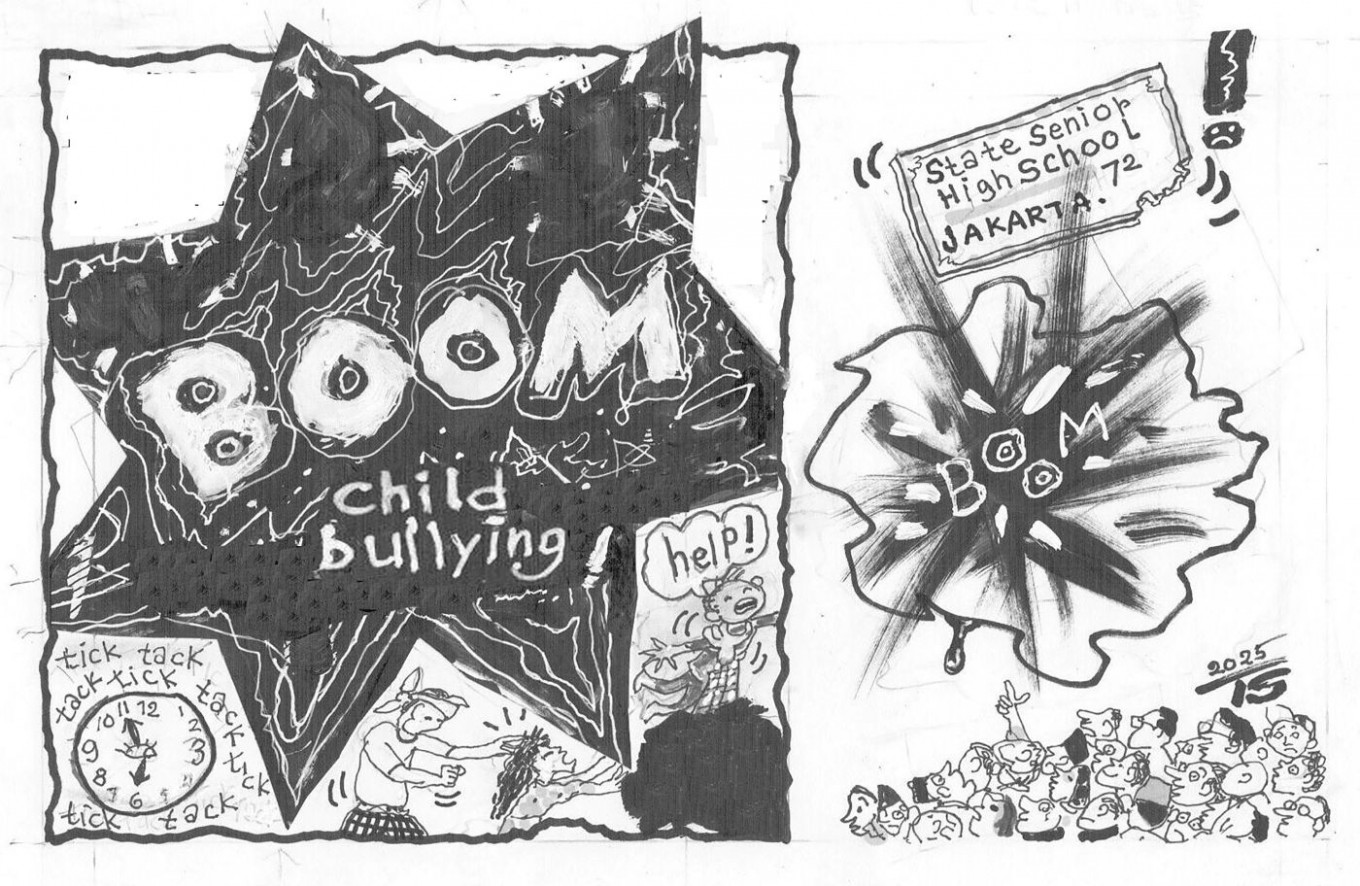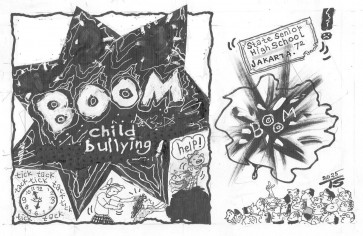Popular Reads
Top Results
Can't find what you're looking for?
View all search resultsPopular Reads
Top Results
Can't find what you're looking for?
View all search resultsChildhood lost, online
The explosive incident last Friday at a North Jakarta school is a tragic, glaring reminder that we are failing in our duty as parents, educators, communities, as a nation, to ensure online safety for underage users.
Change text size
Gift Premium Articles
to Anyone
L
ast week’s blasts at a North Jakarta school has shaken the nation and left parents in despair. The nightmare many feared in this era of digital dominance became a tragic reality when several homemade bombs exploded at an on-campus mosque during Friday prayers at SMAN 72 senior high school, injuring nearly 100 people, mostly children.
Police have described the alleged perpetrator as an “introverted” 17-year-old student, who was also wounded. Isolated at home and school, he is said to have acted out months of pent-up resentment after spending hours consuming gruesome, violent content online.
Investigators said the teen was inspired by violence abroad. His toy gun bore the names of terrorists and extremist ideologies, and he had joined a social media group glorifying violence. Crucially, however, terrorism has been ruled out as a motive.
A forensic psychology researcher said the teen likely had deep emotional wounds and unresolved trauma, an assessment the police later confirmed, saying he had no safe outlet to express his thoughts or seek help.
Behavioral changes such as isolation, anger or fascination with violence are cries for help that must not be ignored. Parents, teachers and communities must take a more proactive role in observing and guiding children, especially in this digital age that amplifies alienation faster than care can catch up.
While a powerful tool for learning and creativity, the internet can also be a breeding ground for harm. From privacy violations to cyberbullying, sexual exploitation and exposure to extremist content, children are at risk online, especially when parental attention and supervision are lacking.
Schools must also fulfill the government mandate to establish violence prevention task forces, as the Indonesian Child Protection Commission (KPAI) reminded the nation following the blasts. Such a task force is not a mere bureaucratic formality, but an essential support system that give vulnerable students a safe space to seek help before distress turns into tragedy.


















